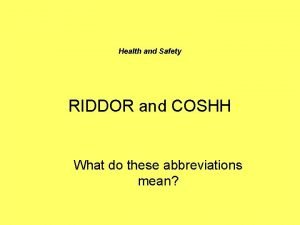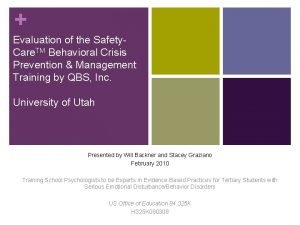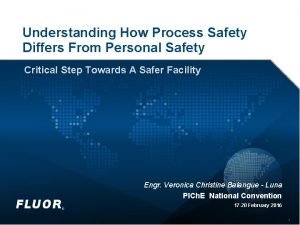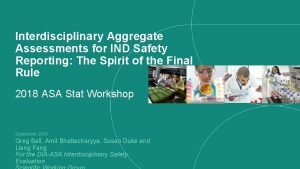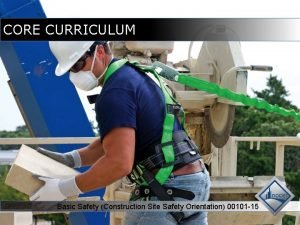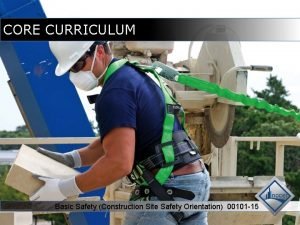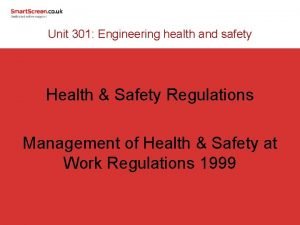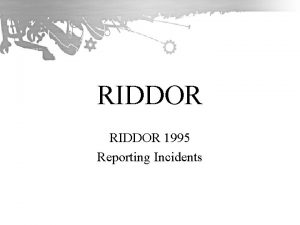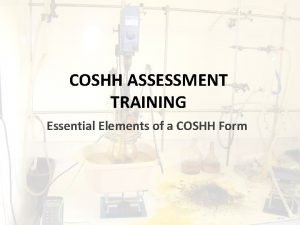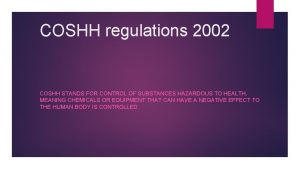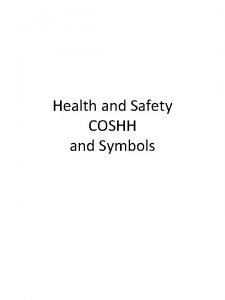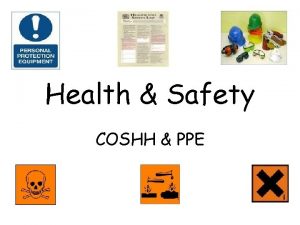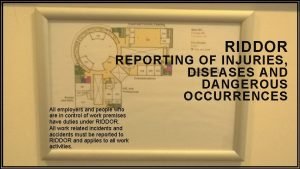Health and Safety RIDDOR and COSHH What do








- Slides: 8

Health and Safety RIDDOR and COSHH What do these abbreviations mean?

RIDDOR – Reporting Injuries, Diseases and Dangerous Occurrences (1996) RIDDOR regulations came into effect in 1996, and requires work related accidents, diseases and dangerous occurrences to be reported by employers. • Examples of the types of accidents that should be reported are: • Fracture (except forefinger, thumb or toe) • Amputation • Dislocation of hip, knee or spine • Loss of sight (temporary or permanent)

RIDDOR – Reporting Injuries, Diseases and Dangerous Occurrences (1996) RIDDOR regulations came into effect in 1996, and requires work related accidents, diseases and dangerous occurrences to be reported by employers. • Examples of the types of diseases that should be reported are: • Dermatitis • Skin cancer • Lung disease • Hepatitis

RIDDOR – Reporting Injuries, Diseases and Dangerous Occurrences (1996) RIDDOR regulations came into effect in 1996, and requires work related accidents, diseases and dangerous occurrences to be reported by employers. An example of a type of dangerous occurrence that should be reported is: • An overloaded electrical circuit, causing a major fire.

COSHH Control of substances hazardous to health (1989)

Substances dangerous to health are labelled: • Very toxic • Toxic harmful • Irritant or • Corrosive

This generally applies to cleaning chemicals • All cleaning chemicals should be stored in a separate place, and locked - so, they usually have their own cupboard. . • Each chemical should have their own COSHH details, which should be clearly displayed & accessible, should there be an accident. • It is also important that people are familiar with the symbols used on products. • It may be necessary to wear protective clothing: • Goggles, gloves, face masker, rubber aprons, arm protectors etc.

Answer the following questions: • • What does RIDDOR stand for? Name one accident that should be reported. Name one disease that should be reported. Name one dangerous occurrence that should be reported. • What does COSHH stand for? • How should cleaning chemicals be safely stored? • Give 3 examples of protective clothing.
